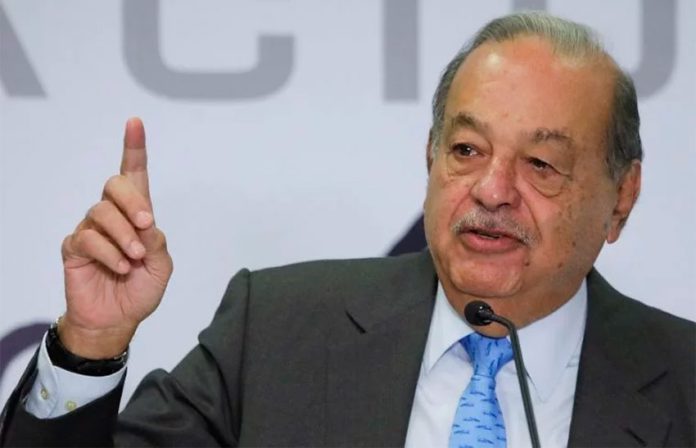A construction company owned by billionaire businessman Carlos Slim has reportedly offered up to 6 million pesos in compensation to victims of the Mexico City Metro disaster in which 26 people were killed and almost 100 others were injured last May.
The tragedy occurred when an overpass on Line 12 of the system – built by a consortium that included Slim’s Carso Infrastructure and Construction (CICSA) – collapsed on the night of May 3, causing two carriages of a train to plunge toward a busy road in the capital’s southeast.
CICSA has offered between 400,000 pesos (US $19,400) and 6 million pesos (US $291,500) to victims, according to a person with knowledge of the negotiations who spoke with the newspaper El País. The amount victims and victims’ families were offered depended on how badly they were affected by the accident.
El País, which has seen agreements signed by victims and CICSA, said that in exchange for accepting the compensation the former had to agree not to initiate any future legal action against the company. The newspaper said that CICSA had reached agreements with some of the victims.
It said that one check for 450,000 pesos had been issued by Banco Inbursa, which is also owned by Slim, Mexico’s richest person.
The agreement that resulted in that payout said the money was to cover moral and physical damages, psychological care, legal expenses and loss of income due to injury or death.
CICSA stated that its participation in the agreement “doesn’t imply and shouldn’t be interpreted … as recognition of any responsibility” for the disaster, which was found to have been caused by shoddy construction work and flaws in the design of Line 12 – the Metro system’s newest line.
Mexico City Attorney General Ernestina Godoy said in October that the companies that built Line 12 – CICSA, Mexican firm Ingenieros Civiles Asociados and French rail company Alstom – could avoid legal processes if they reached agreements with the Mexico City government and provided compensation to victims of the tragedy, the capital’s worst ever Metro disaster.
She said January 19 that compensation agreements had been reached with 80% of the “direct and indirect victims in strict compliance with international standards.”
Last July, the Mexico City government announced payouts of almost 2 million pesos for the families of the 26 people who died. It previously announced smaller compensation payments for people who were injured in the accident.
El País asked the Mexico City Attorney General’s Office whether the 80% figure referred to agreements reached with CICSA but didn’t receive a response. Lawyers who represent victims who haven’t accepted compensation are concerned that their cases will be weakened if the majority of people affected by the disaster have agreed not to take any legal action against Slim’s construction company.

Grupo Carso, of which CICSA is part, has not confirmed or denied that it has paid compensation to victims. A spokesperson for the company told El País it would review the information published by the newspaper before deciding whether it would comment on the matter .
CICSA has already agreed to pay for repairs to the line, which has been plagued by problems since opening in 2012.
The agreement to that end, reached with the Mexico City government and Metro operator STC late last year, stated that the company “did not cause nor is it responsible for the regrettable event on Line 12 of the Metro on May 3.”
A recent report completed by experts commissioned by the Mexico City Attorney General’s Office (FGJ) said that a company subcontracted by CICSA – J.J. Jiménez S.A. de C.V – only installed 65% of the required bolts on the elevated section of Line 12, and those it did use were installed incorrectly.
Carso Infrastructure and Construction could take legal action against J.J. Jiménez, or other third parties deemed to be responsible for the disaster, aimed at compelling them to reimburse it for the compensation it has paid to victims.
The FGJ announced in October that a former Mexico City government official who was in charge of the project to build Line 12 was among 10 ex-functionaries who would face homicide charges in connection with the overpass collapse.
The line was built during the 2006-12 Mexico City government led by Marcelo Ebrard, who is now foreign minister. The former mayor, who has indicated his desire to become the ruling Morena party’s candidate for president at the 2024 election, has rejected suggestions that he was partially to blame for the Metro disaster.
With reports from El País
